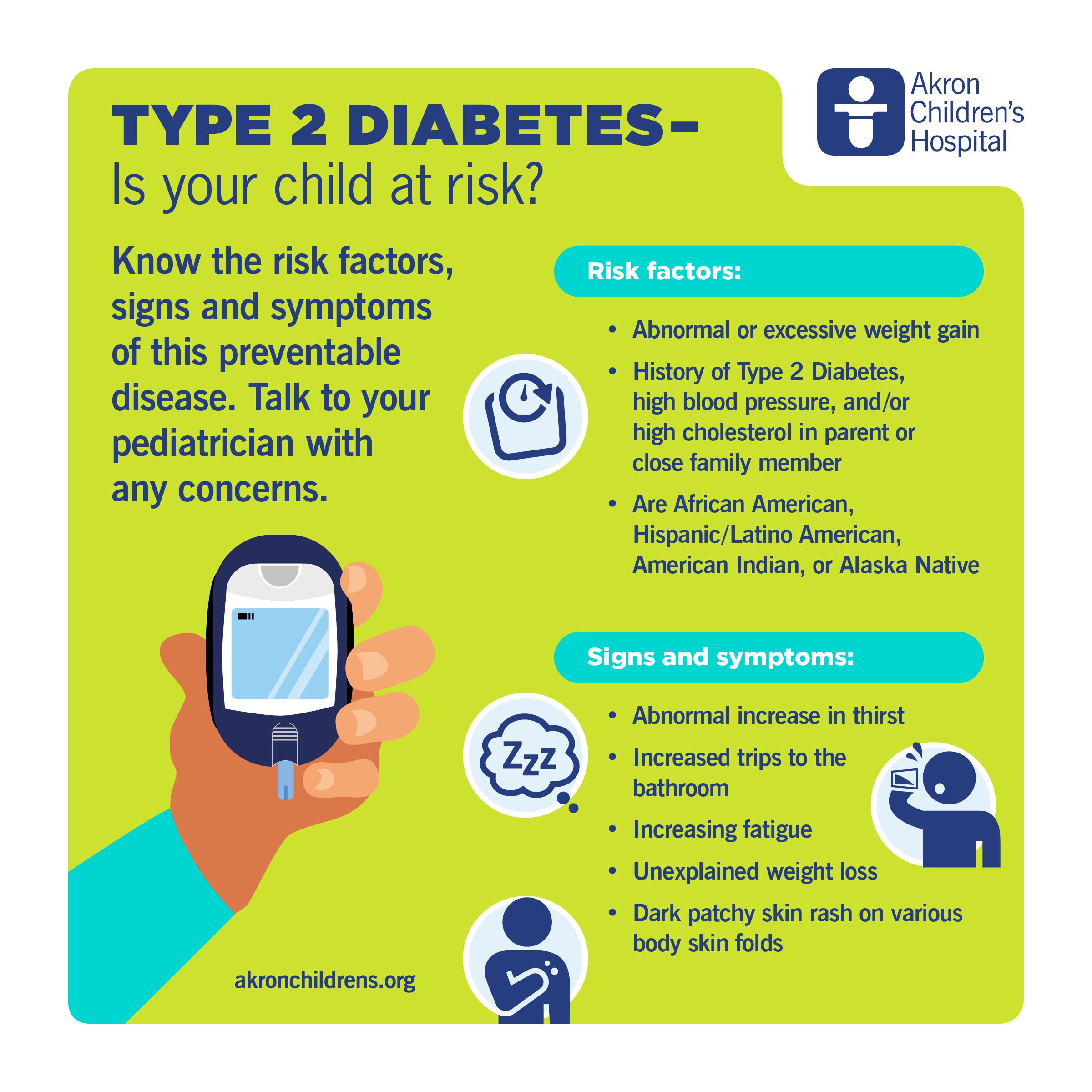A child can have diabetes without knowing for an extended period. For parents, it is essential to be aware of the signs and symptoms of diabetes in children.
Diabetes is a chronic condition that affects the body’s ability to regulate blood sugar levels. While type 1 diabetes is often diagnosed in childhood, some children may have the condition without realizing it. This is due to the gradual onset of symptoms, which can be easily overlooked or attributed to other causes.
By understanding the potential indicators of diabetes in children, parents can take proactive steps to ensure early diagnosis and management of the condition. This article aims to shed light on the duration a child can have diabetes without being aware, emphasizing the importance of awareness and timely action.
The Onset Of Diabetes In Children
Diabetes is a chronic condition that affects individuals of all ages, including children. However, one alarming fact is that children can have diabetes without even realizing it. Parents and caregivers need to be aware of the signs and symptoms of diabetes in children so that an accurate diagnosis can be made as early as possible.
Symptoms Often Missed
Recognizing the symptoms of diabetes in children can be challenging since they often mirror common childhood ailments. However, certain signs should not be ignored. Some symptoms that are often missed or mistaken for other conditions include:
- Frequent urination
- Excessive thirst
- Unexplained weight loss
- Fatigue or lethargy
- Increased hunger
- Blurred vision
- Skin infections or slow wound healing
If your child experiences any of these symptoms, it is important to consult a healthcare professional for proper evaluation and diagnosis.
Risk Factors For Delayed Diagnosis
Several factors can contribute to a delayed diagnosis of diabetes in children. It is crucial to be aware of these risk factors to ensure early detection and treatment. Some of these risk factors include:
| Potential Risk Factors | Explanation |
|---|---|
| Family history of diabetes | Children with a close relative, such as a parent or sibling, who has diabetes are at higher risk. |
| Lack of awareness | Parents and caregivers may not be familiar with the symptoms of diabetes in children, leading to missed signs. |
| Assuming it’s a normal childhood phase | Some parents may dismiss the symptoms as regular childhood behavior, delaying medical attention. |
| Misdiagnosis | Since the symptoms can resemble other conditions, diabetes may be overlooked initially. |
By being aware of these risk factors and staying vigilant, parents can help ensure that diabetes is not left undiagnosed in their children.

Credit: www.health.qld.gov.au
Impact Of Undiagnosed Diabetes
Undiagnosed diabetes in children can lead to severe health complications if left untreated. The impact of prolonged undiagnosed diabetes in children can result in serious consequences, including organ damage and long-term health issues. Parents must be aware of the signs and symptoms of diabetes to ensure early diagnosis and management.
Long-term Health Implications
Undiagnosed diabetes in children can have serious long-term health implications, leading to various complications. If left untreated, diabetes can result in damage to major organs like the heart, kidneys, and eyes. High blood glucose levels over an extended period can increase the risk of cardiovascular diseases, kidney failure, blindness, and nerve damage. Children who remain unaware of their diabetes condition are more likely to experience these health issues as they grow up. Early detection and management are vital to mitigate the long-term effects of diabetes.
Emotional And Psychological Effects
Undiagnosed diabetes also affects a child’s emotional and psychological well-being. Dealing with the symptoms of diabetes, such as frequent thirst, frequent urination, and fatigue, can be overwhelming for a child who doesn’t understand what is happening to their body.
They might feel confused, scared, or anxious. Additionally, undiagnosed diabetes can lead to mood swings and irritability due to unstable blood sugar levels. As a result, the child’s overall quality of life may suffer, affecting their academic performance and relationships with peers and family members.
Let’s take a closer look at the long-term health implications of undiagnosed diabetes on children. High blood glucose levels over time can result in significant damage to major organs such as the heart, kidneys, and eyes. Children with undiagnosed diabetes are at a higher risk of developing cardiovascular diseases, kidney failure, blindness, and nerve damage as they enter adulthood.
Managing diabetes early on is crucial to preventing these long-term complications. By ensuring that a child receives early diagnosis and appropriate treatment, parents and healthcare providers can help minimize the impact of diabetes on their long-term health. Moreover, the emotional and psychological effects of undiagnosed diabetes should not be overlooked.
A child who do not know they have diabetes may experience confusion, fear, and uncertainty as they struggle to understand why they feel thirsty all the time, urinate frequently, or constantly feel tired. Undiagnosed diabetes can also lead to mood swings and irritability due to unstable blood sugar levels.
This can put a strain on the child’s relationships with family members and friends, as well as impair their academic performance.
Overall, the impact of undiagnosed diabetes on a child’s physical health and emotional well-being cannot be ignored. Early detection and diagnosis are crucial to prevent long-term complications and provide the necessary support for the child to lead a healthy and fulfilling life.
Challenges In Diagnosing Diabetes In Children
Identifying diabetes in children can be a complex and often challenging task. Due to the nature of this condition, symptoms can be easily misattributed or dismissed altogether. Additionally, family and societal misconceptions can further complicate the diagnosis process. By understanding these challenges, we can work towards early detection and provide better care for children with diabetes.
Misattributed Symptoms
One of the significant challenges in diagnosing diabetes in children is the misattribution of symptoms. The early signs of diabetes, such as frequent urination, extreme thirst, and unexplained weight loss, can easily be mistaken for common childhood behaviors or minor health issues. Children being active and thirsty is often considered normal, leading parents and even medical professionals to overlook these symptoms.
This misattribution delays the diagnosis and treatment of diabetes, leaving children vulnerable to long-term complications. Therefore, parents and healthcare providers must be aware of the possibility of diabetes when these symptoms persist or worsen over time.
Family And Societal Misconceptions
Family and societal misconceptions surrounding diabetes can also hinder its diagnosis in children. Some parents and caregivers may believe that diabetes only affects adults or individuals with unhealthy lifestyles. This misconception can prevent early intervention, as the possibility of diabetes may not even be considered if the child does not fit the perceived stereotype.
Moreover, societal misconceptions can further complicate the diagnosis process. The lack of awareness and understanding within the community may lead to a delay in seeking medical attention or dismissing symptoms as insignificant. This delays vital medical intervention and increases the risk of complications for children.
Addressing these misconceptions through education and awareness campaigns can play a crucial role in improving the early detection of diabetes in children. By promoting accurate information about diabetes, we can help parents and caregivers recognize the signs and seek proper medical evaluation for their children.

Credit: www.akronchildrens.org
Improving Early Detection And Management
Importance Of Regular Check-ups
Regular check-ups play a crucial role in the early detection and management of diabetes in children. By scheduling routine medical appointments, parents can ensure that their child’s health is monitored closely, allowing any signs or symptoms of diabetes to be detected early on. These check-ups typically involve a thorough examination, including blood tests that can detect abnormal levels of glucose and other markers associated with diabetes.
Early detection is vital because diabetes can be present in children for a significant amount of time before symptoms become noticeable. Without regular check-ups, children may go for months or even years without knowing they have diabetes. This delay in diagnosis can lead to uncontrolled blood sugar levels, which can cause serious complications and put their health at risk.
Education And Awareness Initiatives
To improve early detection, education and awareness initiatives are key. These initiatives aim to equip both parents and healthcare providers with knowledge about the signs, symptoms, and risk factors associated with childhood diabetes. By raising awareness about the importance of regular check-ups, these initiatives encourage parents to be proactive in seeking medical attention for their children.
In addition to educating parents, healthcare professionals can benefit from ongoing training and resources to enhance their ability to recognize diabetes symptoms in children. This includes staying updated on the latest research, guidelines, and treatment options for pediatric diabetes. By equipping healthcare providers with the necessary tools and information, children with undiagnosed diabetes can be identified and managed more effectively.
Furthermore, community-wide awareness campaigns can help reach populations that may have limited access to healthcare or may not be aware of the signs and symptoms of diabetes. By providing easily accessible information in schools, community centers, and other public settings, these initiatives can help parents recognize potential diabetes symptoms in their children and seek timely medical care.

Credit: www.onlymyhealth.com
Frequently Asked Questions For How Long Can A Child Have Diabetes Without Knowing?
How Can A Parent Recognize The Symptoms Of Childhood Diabetes?
Recognizing the symptoms of childhood diabetes involves paying attention to signs like increased thirst, frequent urination, sudden weight loss, fatigue, and irritability. If you notice any of these symptoms in your child, it’s important to seek medical attention for proper evaluation and diagnosis.
What Are The Risk Factors For Diabetes In Children?
The risk factors for diabetes in children include genetics, family history of diabetes, being overweight, lack of physical activity, and exposure to certain viruses. Parents must be aware of these risk factors and work towards promoting a healthy lifestyle for their children to reduce the risk of developing diabetes.
Can Childhood Diabetes Be Managed With Diet And Lifestyle Changes?
Yes, managing childhood diabetes involves a combination of healthy eating, regular physical activity, and monitoring blood sugar levels. Working closely with healthcare professionals, parents can help their children make necessary lifestyle changes to control their diabetes and reduce the risk of complications.
How Can Parents Support A Child Diagnosed With Diabetes?
After a diabetes diagnosis, parents can support their child by educating themselves about the condition, teaching their child about blood sugar management, fostering a supportive environment, and advocating for their child’s needs at school and in social settings. Open communication and consistent support are crucial for managing childhood diabetes.
Conclusion
In essence, it is crucial to acknowledge that diabetes can often go unnoticed in children, leading to potential long-term health complications. By educating ourselves on the warning signs and symptoms, we can better identify the condition and seek appropriate medical attention promptly.
Remember, early detection and management are key to ensuring the well-being of our loved ones. Stay vigilant, stay informed, and prioritize your child’s health.
